|

|
Radical Candor:
When you criticize someone without taking even two seconds to show you care, your guidance feels obnoxiously aggressive to the recipient.
|
025 |
|
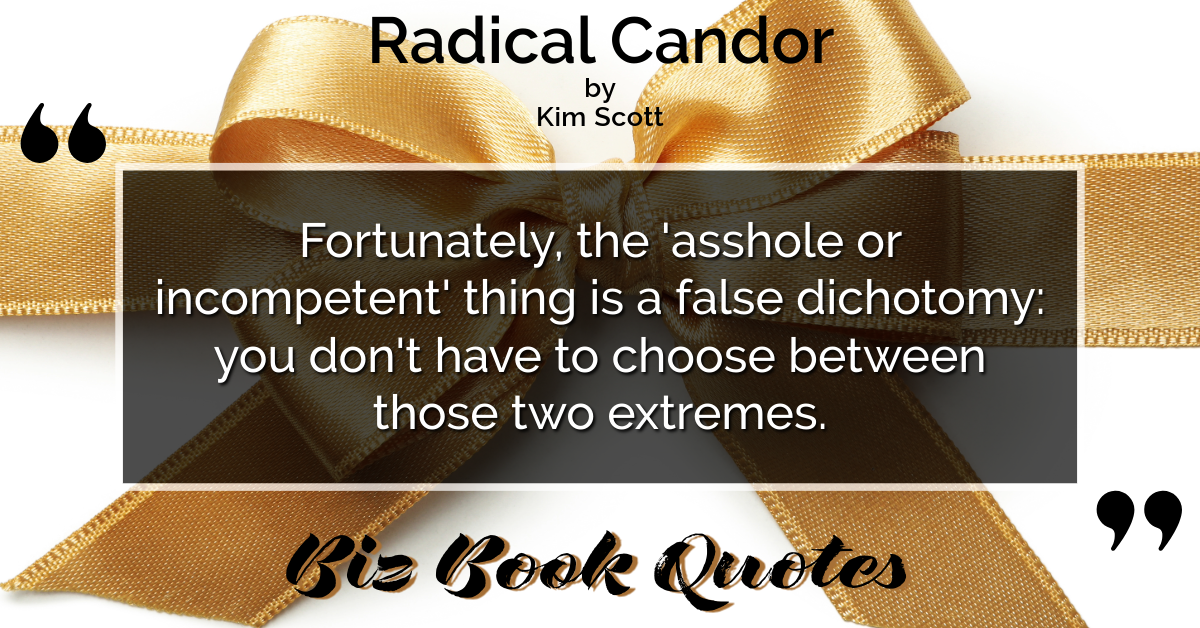
|
Radical Candor:
Fortunately, the ‘asshole or incompetent’ thing is a false dichotomy: you don’t have to choose between those two extremes.
|
025 |
|
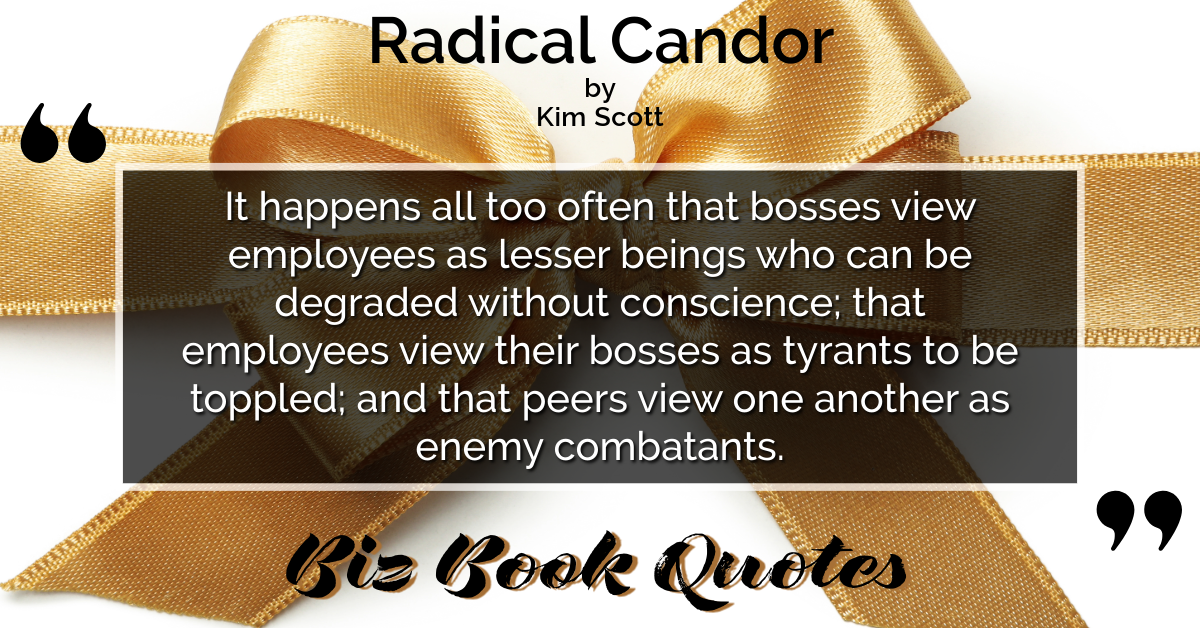
|
Radical Candor:
It happens all too often that bosses view employees as lesser beings who can be degraded without conscience; that employees view their bosses as tyrants to be toppled; and that peers view one another as enemy combatants.
|
026 |
|
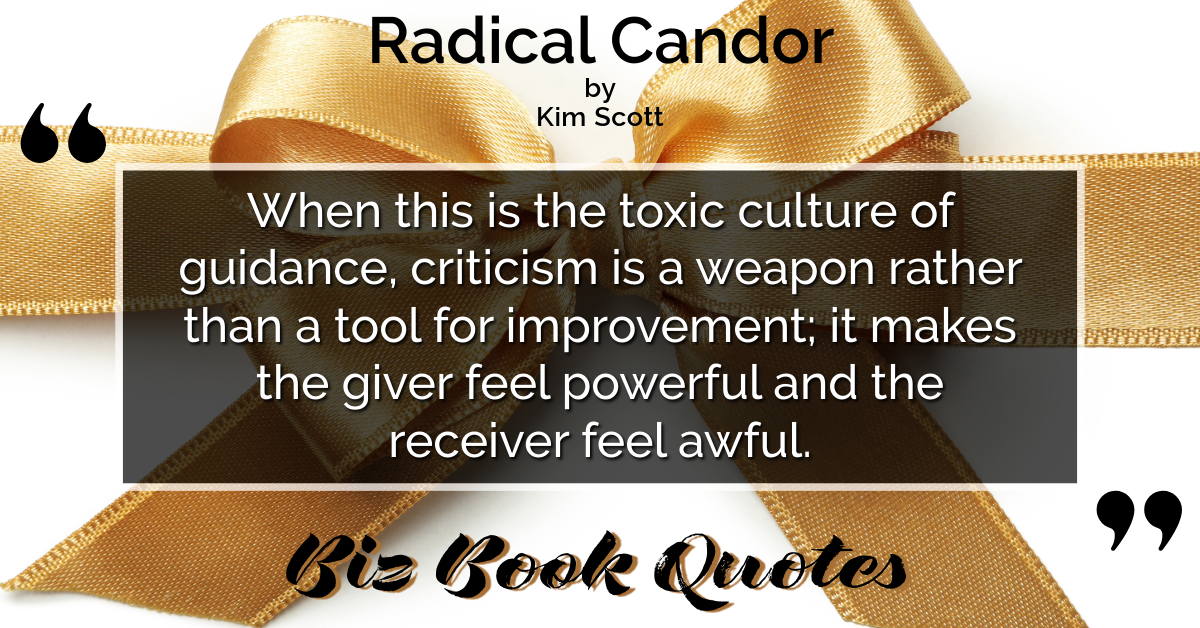
|
Radical Candor:
When this is the toxic culture of guidance, criticism is a weapon rather than a tool for improvement; it makes the giver feel powerful and the receiver feel awful.
|
026 |
|
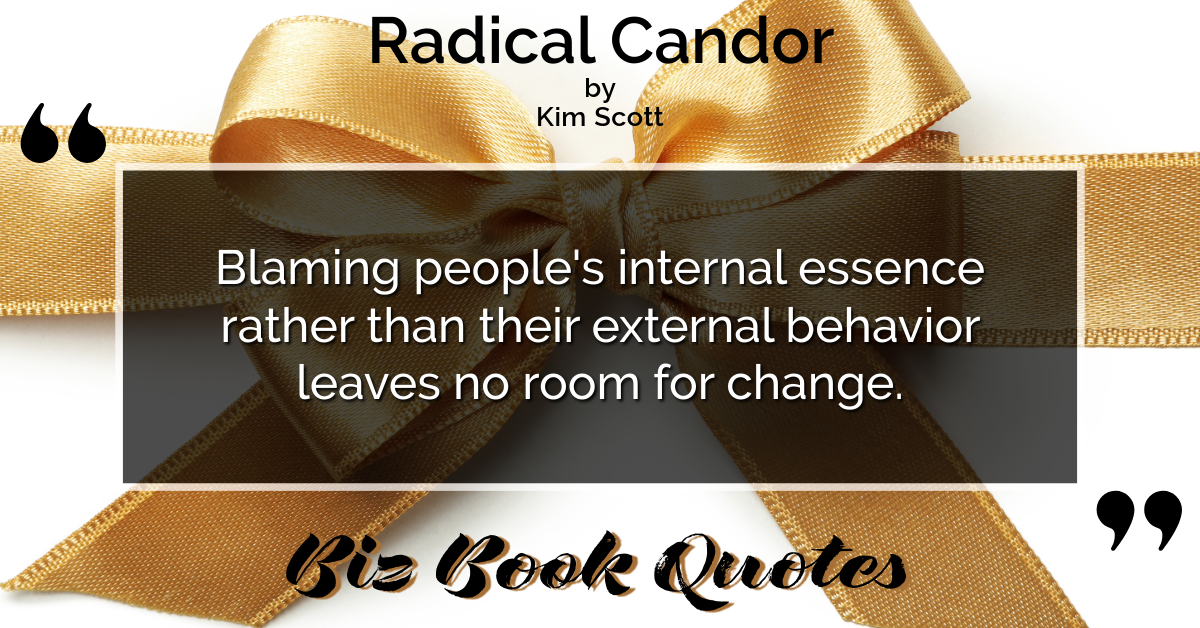
|
Radical Candor:
Blaming people’s internal essence rather than their external behavior leaves no room for change.
|
026 |
|

|
Radical Candor:
When you are overly worried about how people will perceive you, you’re less willing to say what needs to be said.
|
030 |
|
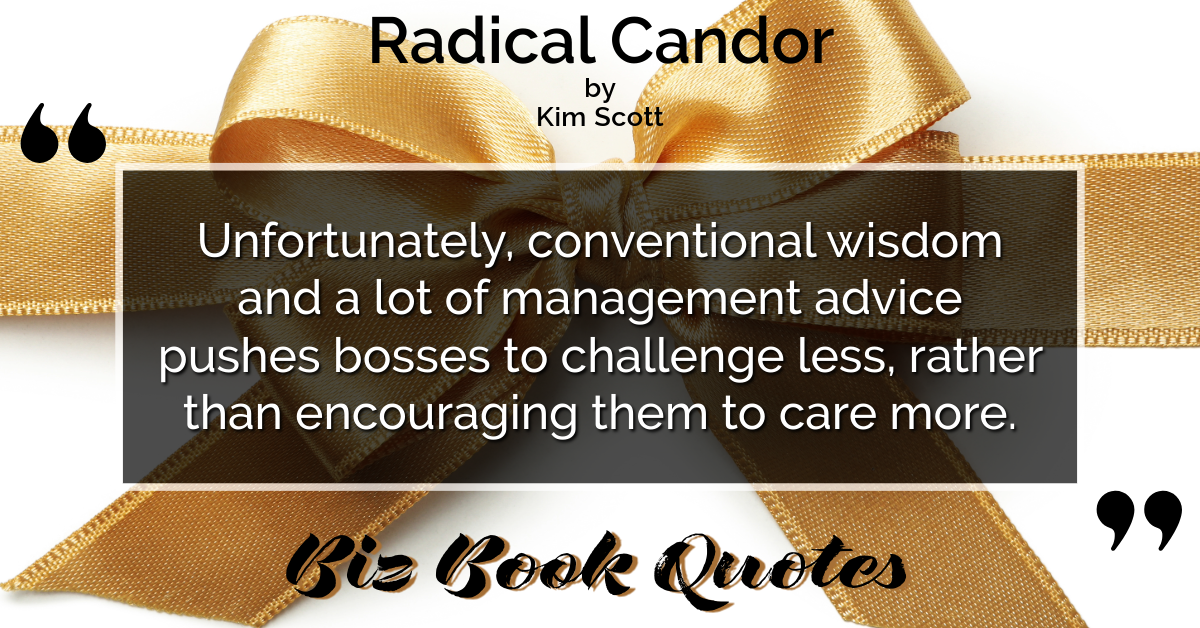
|
Radical Candor:
Unfortunately, conventional wisdom and a lot of management advice pushes bosses to challenge less, rather than encouraging them to care more.
|
031 |
|

|
Radical Candor:
If a person is bold enough to criticize you, do not critique their criticism.
|
034 |
|

|
Radical Candor:
…the best praise does a lot more than just make people feel good. It can actually challenge them directly.
|
035 |
|

|
Radical Candor:
…ask for criticism before giving it, and offer more praise than criticism. Be humble, helpful, offer guidance in person and immediately, praise in public, criticize in private, and don’t personalize.
|
038 |











